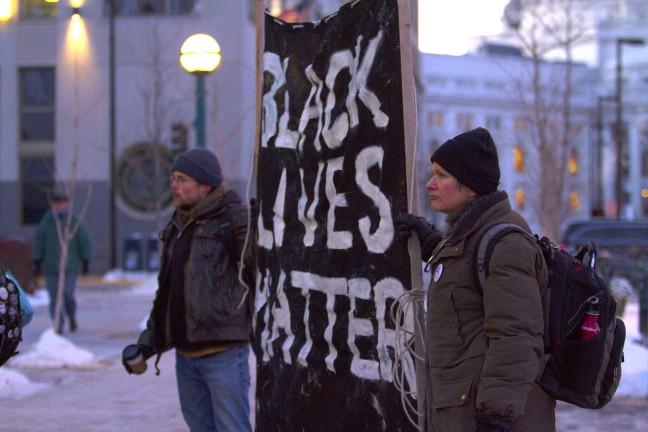Addressing “ratchetness” and respectability, Dr. Brittney Cooper spoke on racial justice and self-expression to illustrate the challenges black people face as part of the Black Lives Matter lecture series Tuesday.
Cooper, a professor of women’s and gender studies and africana studies at Rutgers University, discussed racial and gender issues including respectability politics, “ratchetness” and media attention and perception of African-Americans.
The term “politics of respectability” refers to the notion that all black people are responsible for self-regulating their own behavior and independently improving their own situations, Cooper said. Black people are entrusted with the responsibility for constructing the public “negro self,” as self-presented to the world as worthy of respect, she said.
“Respectability demanded that every individual in the black community assume responsibility for behavioral self-regulation and self-improvement along moral, educational and economic lines,” she said.
Cooper used current events and pop culture to illustrate the challenges that black people face today in America. The enigmatic image and fashion trend of sagging pants is one example, she said.
The fashion trend originates from a scene in John Singleton’s 1991 movie “Boyz n the Hood” and is one of the earliest representations in visual culture of young black men sagging their pants, Cooper said. This has also become the subject of ticketing and fines in municipalities around the country, she said.
“Whatever your personal view of how high on the waist someone chooses to wear his or her pants, I think we can all agree that sagging pants don’t determine ones access to a college education, and have no bearing on someone’s outcome if they should encounter the police,” she said.
Even if sagging pants do have a bearing on those outcomes, the more important point is that they should not, Cooper said.
Cooper addressed the implications of the lingering allegations of rape and sexual assault against pop-culture figure Bill Cosby. These allegations go back as early as 1966, she said.
“We didn’t begin paying attention to those accusations until Hannibal Buress, another male comedian, ripped Cosby in late October and called him a rapist in a comedy,” Cooper said. “At that moment a whole host of women began to come forth. The number of accusers alone are enough to give us pause.”
The term “ratchetness” also plays a key role in society as a slang term and cultural phenomenon, she said.
Cooper showed a video of hip-hop artist Hurricane Chris breaking out in song and dance in the Louisiana state Legislature to characterize what she refers to as a “ratchet moment.”
“It’s just a complete ‘fuck you’ to the power structure, an attempt to tap into something different,” Cooper said.
Ratchet is a term that can be used positively to describe forms of African-American self-expression less self-consciously, Cooper said.
These days, ratchet is used interchangeably with the way ghetto was used to talk about black people and black culture disparagingly, Cooper said.
“[Ratchet is] a kind of hustling, in that it is hard working in its pursuit of resources and pleasure,” Cooper said. “It has a kind of don’t-give-a-fuck-ness about it. Ratchetness is unapologetically, unselfconsciously different, and it figures problems not as the problems of the ratchet but as a problems of the power struggle.”


